A guide for international students looking to come to Canada.
It is the end of my first semester as an international student at a Canadian University and this article shares what I have learned.
You can also title this article as “expectation versus reality”, or “here is a list of things you should know before you decide to go to school in Canada” or “schooling in Canada for international students”, feel free to choose one.
As you continue reading, I hope you finish this article and remember TheFisayo told you so. It is a list of information I believe will help you when deciding where to school and what province to choose and what yardsticks to use to decide.

Book a 1:1 SCHOLARSHIP review session
University Essay Admission Template
The abroad is expensive:
For non-Nigerians reading this, we Nigerians refer to – the Uk, Canada, the USA and a few other countries as “the abroad”.
I want this to be as reflective as possible, so I am going to be sharing a lot of my experiences. I came to Canada with the expectation of having an American experience because I have been to America a couple of times, so I expected to have similar experiences in Canada.
By this I mean in culture, in pricing, in food, and a number of things. For this section, I will focus on pricing.
However, upon reflection, I did go to America only during my family holidays, so if anything was over my budget, I could still rely on “the family budget”. As an international student in Canada, you are as independent as you will ever be, especially if you are a first-generation from your family on a new territory like this.
Housing is expensive, feeding is expensive, transportation is expensive, to live life in Canada is expensive.
This is as a result of a number of things, I would highlight two; the province I am in and the Dollar conversion.
The Canadian Dollar is less than US Dollars in value, so when you estimate goods you want to buy in-store or online and convert them to Canadian Dollars it automatically becomes more expensive.
According to my experience and the research I have done, British Columbia (a Province in Canada) has the highest cost of living when compared to other provinces. The next on this list is Ontario, which is where Toronto is located.
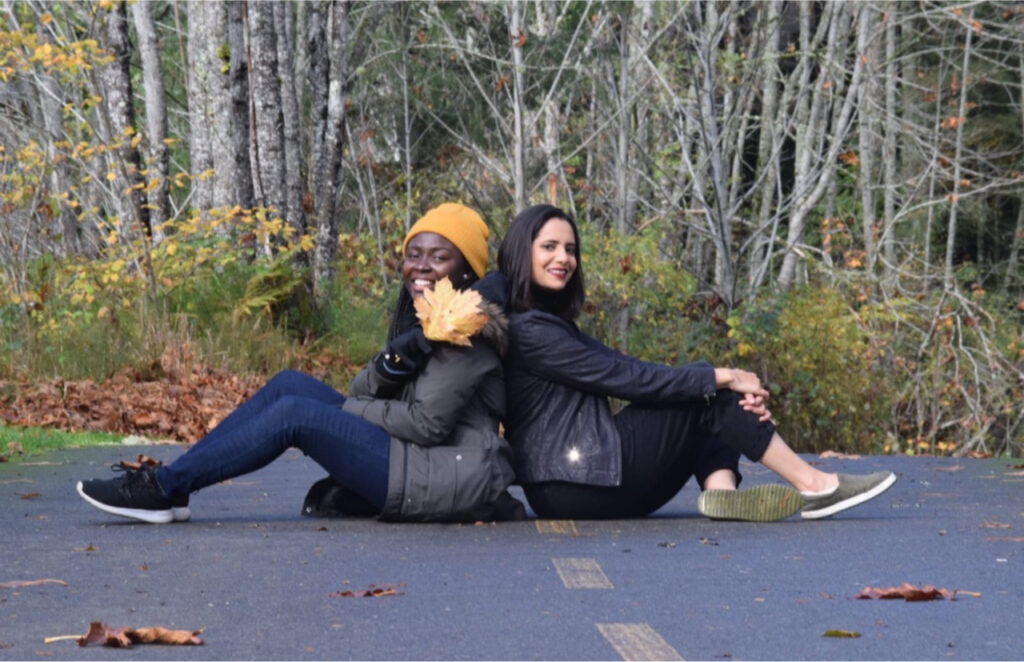
British Columbia (BC) also has high tax rates of 12% – 14% (PST & GST). And EVERYTHING IS TAXED. Your savings, investments, your expenses, your income, everything. So your money is reducing in your bank account, and you are paying more for everything.
Housing is also really expensive here in BC. If my schooling decision were based on choosing a province with the cheapest accommodation, I would be looking at a province like Ontario or Alberta.
As I mentioned on my University’s page, I chose BC because my preferred school had the course I wanted, and the school is located in BC. Also, because BC is the warmest region in Canada. And I bet we pay the price of being in the warmest region through our taxes and the high cost of living.
Services are also expensive in Canada; I call them expensive because I can compare them to where I am from. To a Canadian, it might be the average price. An example is a cost of making hair.
In my second week in Canada, I wanted to braid my hair, and different hairstylists told me that the cost ranged from $120 – $250. The shock on my face was priceless.
I kept saying in my mind that “in Nigeria”, I would pay at most $20 to braid my hair.
My laptop screen also got spoiled, and I was told it would cost $500 – $700 to repair it, which I can easily get fixed for $100 in Nigeria. So a lot of this was a culture shock to me.
I would definitely advise black ladies to bring as many crochets from your country as possible and prepare to make your hair yourself to reduce cost.
Lastly, you are OYO (on your own) when you come to Canada unless you know people.
Everyone has bills to pay, so I find that the African culture of knowing that there is someone that you can rely on or bail you out does not work here unless you have built a fantastic community of friends.
Building friendships is essential before moving to a country you have never been to before.

The abroad is cold
As much as I thought I was mentally prepared for the cold, there was nothing that prepared me for the experience.
I chose the warmest region in Canada, however, I have been out in the cold crying my eyes out while waiting for the bus.
Canada is cold, and it is not an understatement.
If you are used to receiving nutrients from the sun all your life, especially if you are coming from a tropical region like myself, then you are not ready for the cold. Trust me.
The best thing you can do to beat the cold as an international student is to buy quality winter jackets that will keep you warm and buy a car if you can afford it.
A car is advisable if you do not want to spend 20 minutes – 60 minutes waiting for your next bus in the cold. This part is excruciating and this is my story.
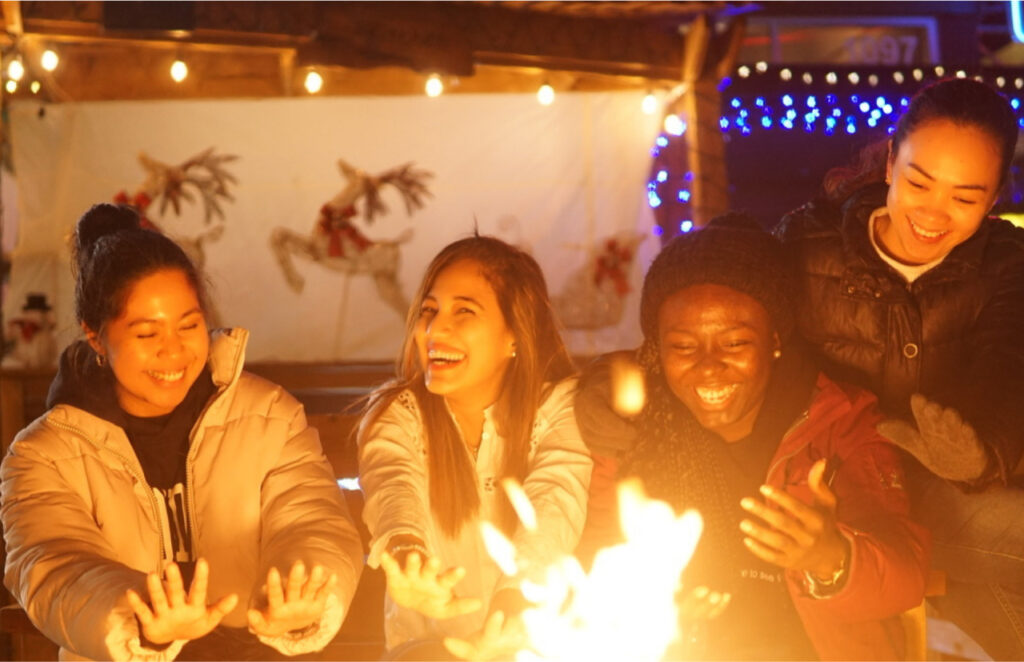
Buy thermal wear, wear layers, get extra heaters for your house if you need one. Another thing to note is that, during the winter season, you have shorter days and longer nights.
The sun begins to set by 4 PM. You have actual darkness in the sky from 4 PM, it is wild for me, I still find it difficult to comprehend.
3. Did I mention that ‘the abroad’ is expensive? E shock me.
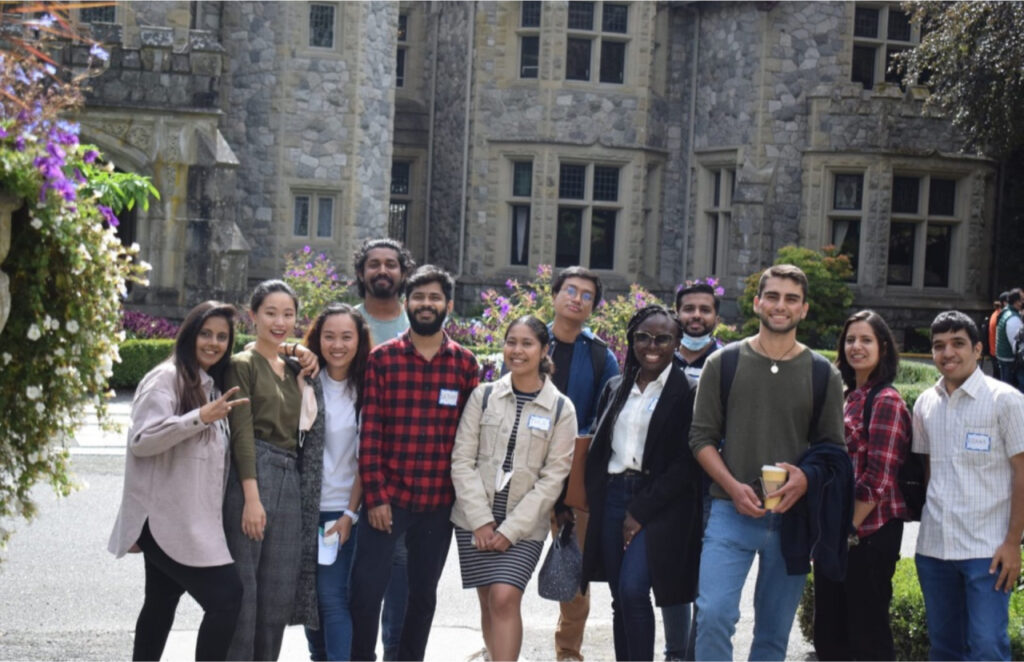
Canada is diverse
Remember I said I expected to have an American experience in Canada? Part of that was referring to the ease of seeing people that looked like me.
I could count how many black people I met in my first week in Canada. It was small. Really small.
Part of that is because of the province I am in, I have been told that if I were to be in Toronto, I would see zillions of black people.
So keep that in mind when choosing a province based on your preference.
If you love the diversity, BC is a great blend of all cultures globally. There are a higher percentage of Asians followed by Europeans, Americans and then the First Nations citizens.
This is just based on my observation, feel free to do more research.

You have to be intentional:
To have fun, meet people, do things outside of school, you need to intentionally do them. I stay in a city where it is easy for me to decide to sit at home when I do not have classes because the culture is a stay at home culture and the environment is very calm and peaceful. However, to make the best out of your school experience, I advise you to do useful things that are out of your comfort zone. Make school friends, celebrate little wins – like an assignment completion, ask questions, build relationships with your professors. Then again, this all depends on your purpose for being in school, the above might not necessarily be applicable to you.
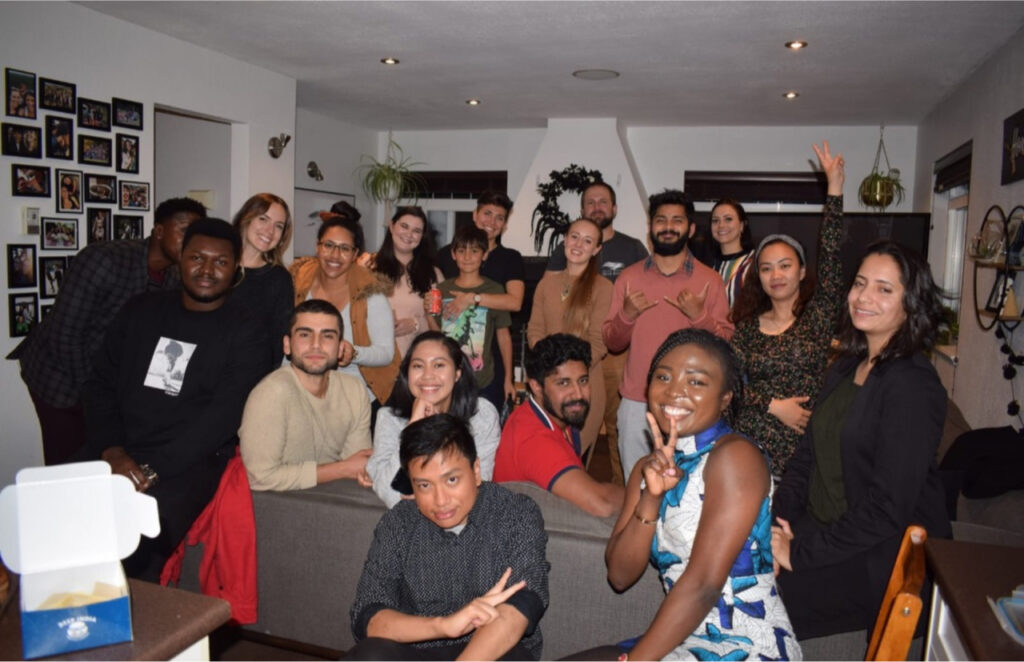
Networking helps
Use LinkedIn to build your network before coming to Canada. This is what I did. If your goal is to have many friends that have the same skin colour as you from your school, then use LinkedIn to search for students in your school. They will help you navigate your first few weeks in school which is very valuable. My classmates mentioned that FaceBook really helped them.
They joined the international student association groups on FaceBook, along with other community groups, and this helped them when looking for accommodation, information and connections.
Having people in your life that will help you navigate that first few weeks is an incredible asset to have.
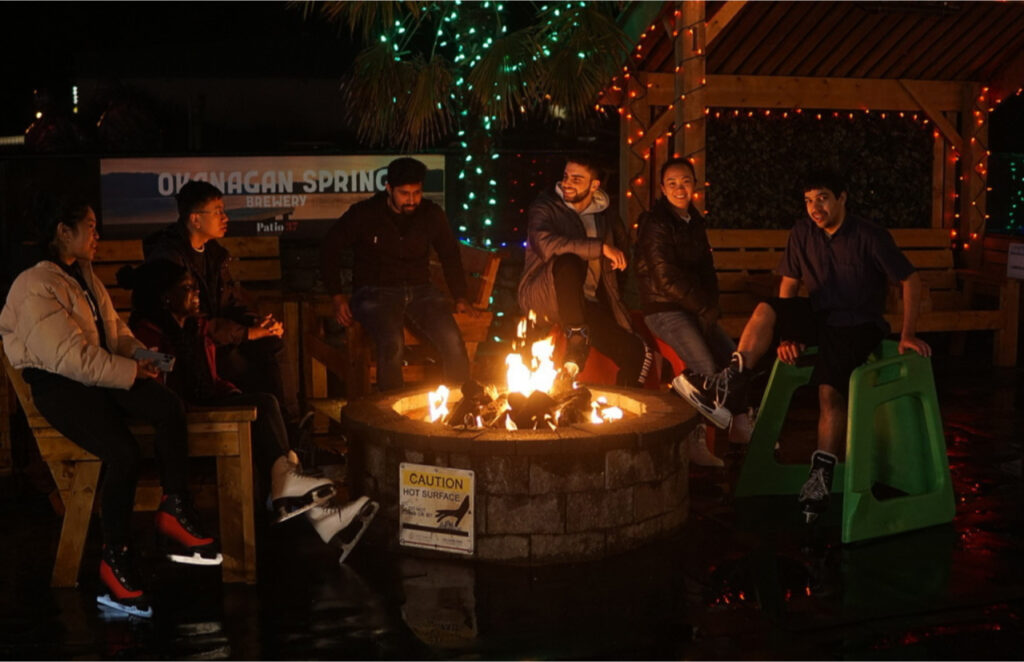
Finding Accommodation
This is my budget, how do I find good accommodation? This is a multi-million dollar question. Accommodation is a hot topic, especially for students at my school because our campus does not have dorms. So we had to scout for accommodation online. I did this two months before coming, and I was not getting anywhere with my research.
Eventually, I applied for an accommodation scholarship with Canada Homestay as mentioned in this post on Instagram.
This greatly reduced my stress levels on having to look for the best accommodation that was in close proximity to my school campus.
The company pairs students with Canadian families. This is a paid service, however, they periodically select students for scholarships.
Below are a few sites that you would find useful when deciding on accommodation:
- Kijiji
- Facebook market place
- Used Victoria
- You might find useful links on my school website as well
There is more, but those are the best I can advise for now.
Finding good accommodation is really never easy, and I pray you get something great within your budget in Jesus name.
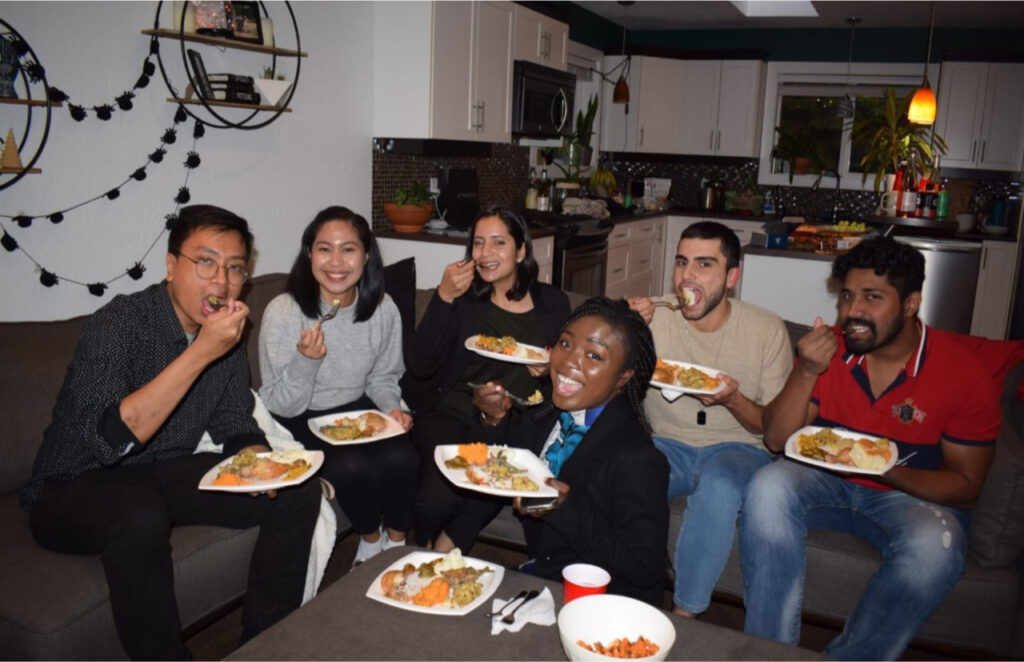
Bring your food and spices from your country:
As I mentioned, everything is expensive here, so if you cook and like your cultural/traditional food, then it would be best to bring 1 year worth of spices and ingredients from your country because they are scarce and expensive in Canada. I brought ingredients from Nigeria, but I wish I could go back to bring more.
If you need any help applying for a student visa send me an email and I will connect you with the agency that helped me with mine; hello@thefisayo.local
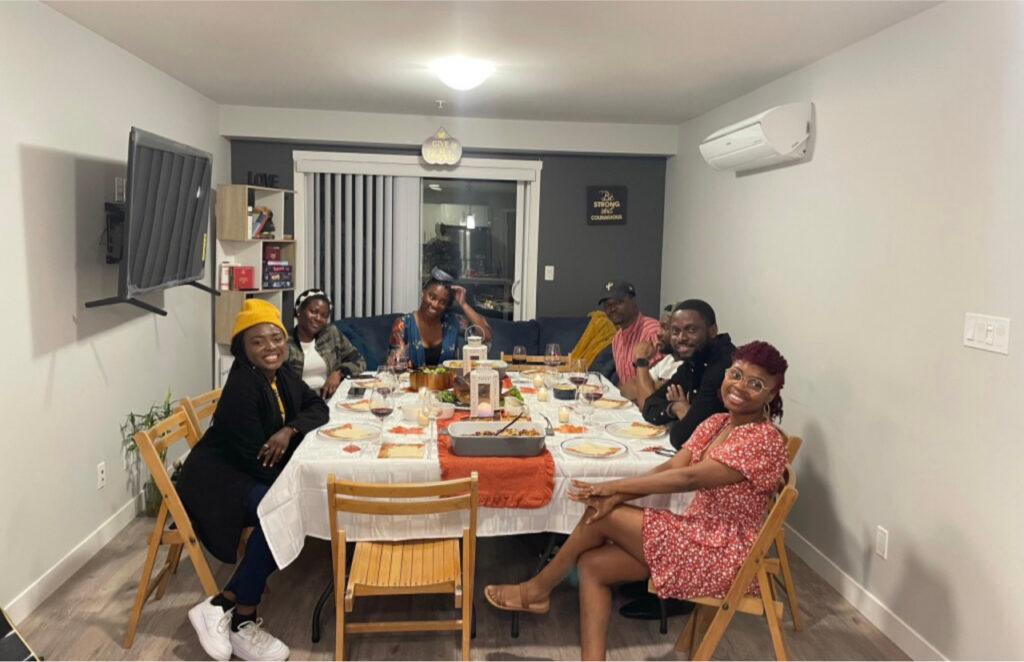
Get ready to feel homesick
This is something I underestimated because I travel a lot for work so I did not think I would be homesick or miss my family as much as I have. But I did and it definitely led me to tears on some days. I have never been far away from my family for a long period of time and this has made me miss the little things about Nigeria that I took for granted. I miss Nigerian food, music and vibe.
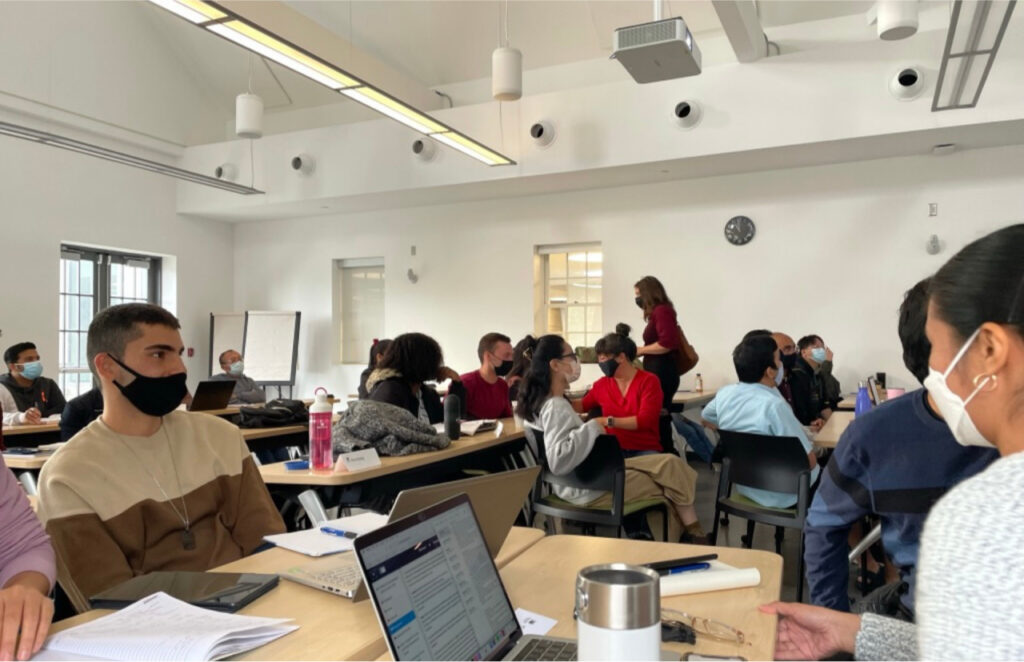
12. Learning is different:
Get ready to read 5 – 10 academic articles/books per class. Being a student of Royal Roads University, I can tell you from my experience that I had to unlearn and relearn a lot at a fast pace.
I found the first few weeks a little difficult for me because of the level of education, coupled with the fact that I finished my undergraduate degree 6 years ago.
So, my brain has not been in school mode for 6 years. It took 3 – 4 weeks for me to get used to the new system.
It was quite frustrating at times, however, what helped me was the fact that I have great lecturers who are indeed interested in our learning and our growth.
I could easily ask questions and seek guidance. We also have a great online library resource that I found really useful.
Lastly, being in class with other bright minds who were humble enough to provide clarity when needed also helped. My advice to you is to always ask questions. Do not be shy. This is what you paid your school fees for. Make sure you use every part of your school fees. I did this by using the writing centre services, counselling services, and the other extra services provided in school. You paid for it, make the best use of your time in school. So, when thinking of a province to school in Canada, consider the following:
- The course you want to study: click here to search for Universities with your courses in Canada
- Your career path
- The weather conditions
- The cost of living
- Family and friends availability and the list continues based on your preference.
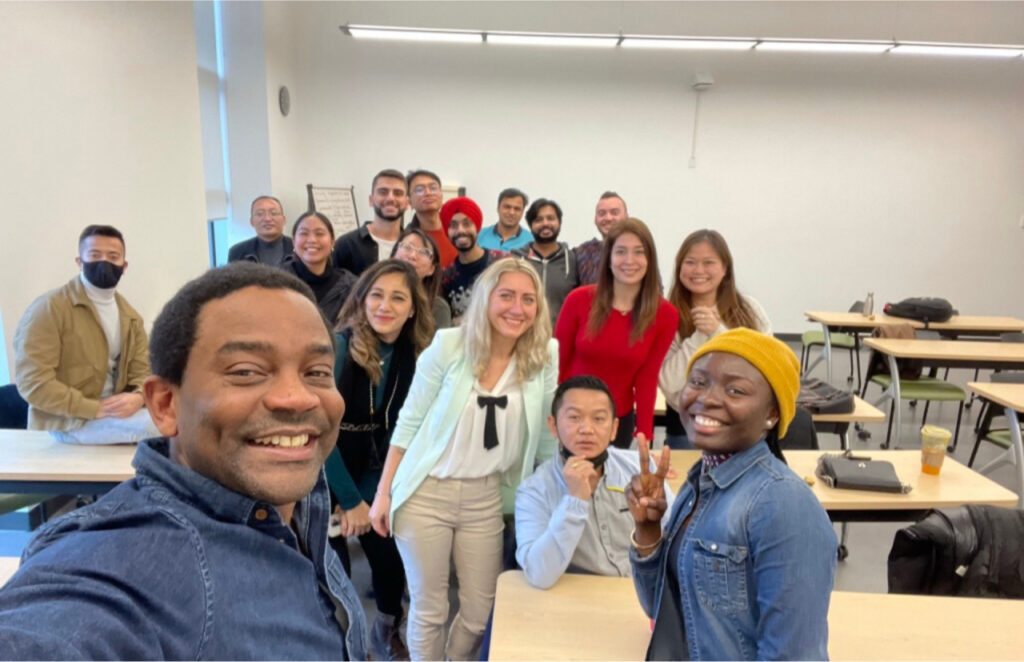
Leave a comment sharing other international student experiences you would like me to write about on my blog or make a video on my YouTube Channel.
Examples are “how to get a Job/SIN”, “how to plan your 2 weeks Quarantine”, etc. Also, if you are an international student, feel free to share any valuable experience in the comments for others to learn from. I hope you found this content valuable.
Next Steps:
Click any of the links below to take your next step as you begin your journey to Canada as a student.
Applying for university in Canada
Getting Scholarships in Canada
Book a 1:1 SCHOLARSHIP review session
Canadian Immigration Application
Share this with someone coming to school in Canada, and share this if you can relate to anything on this list.
Merry Christmas!
Follow me on Twitter and Instagram – @TheFisayo.


Leave a Reply